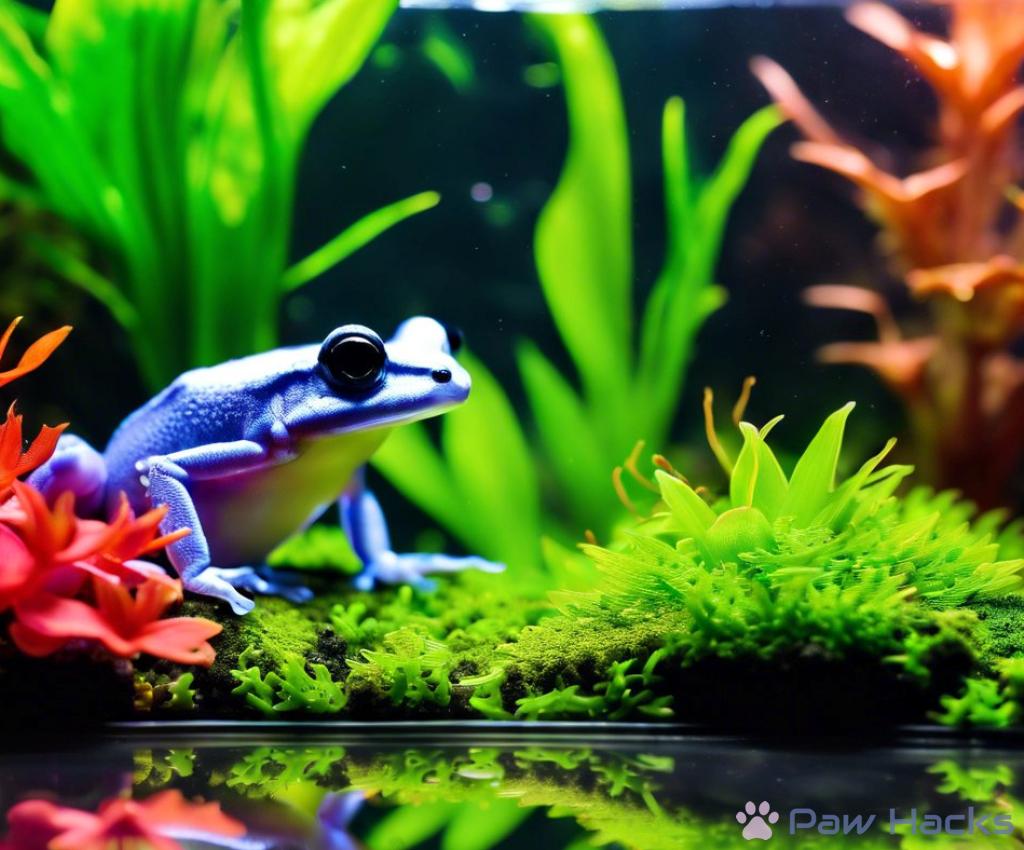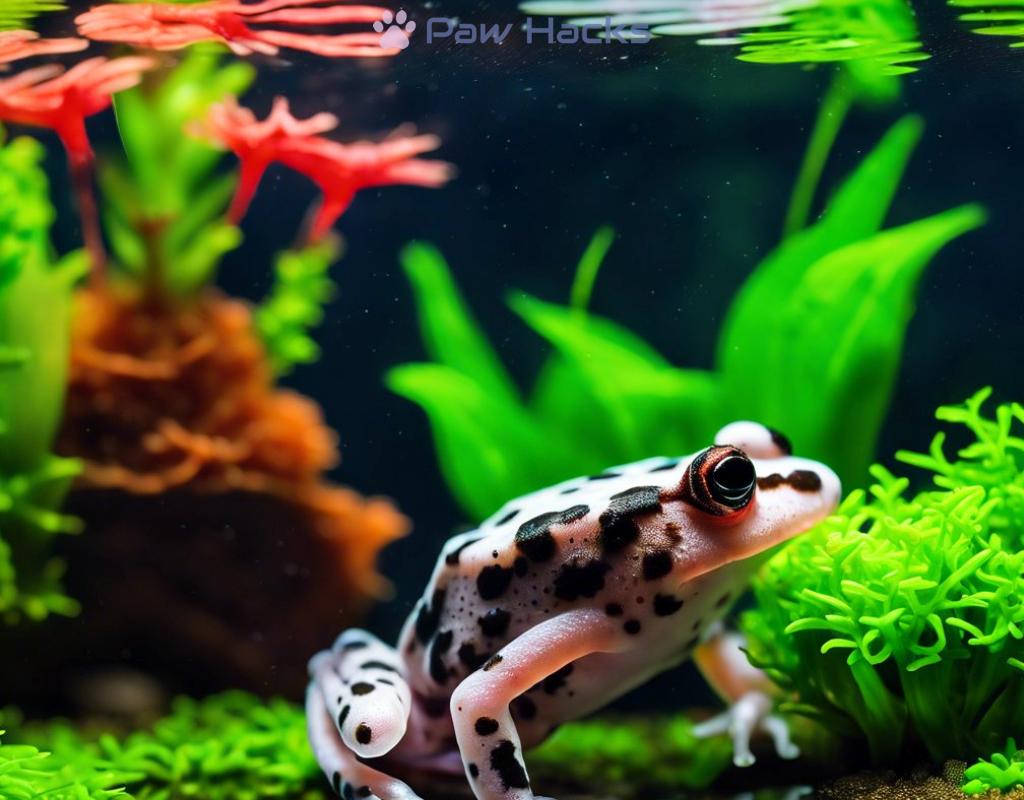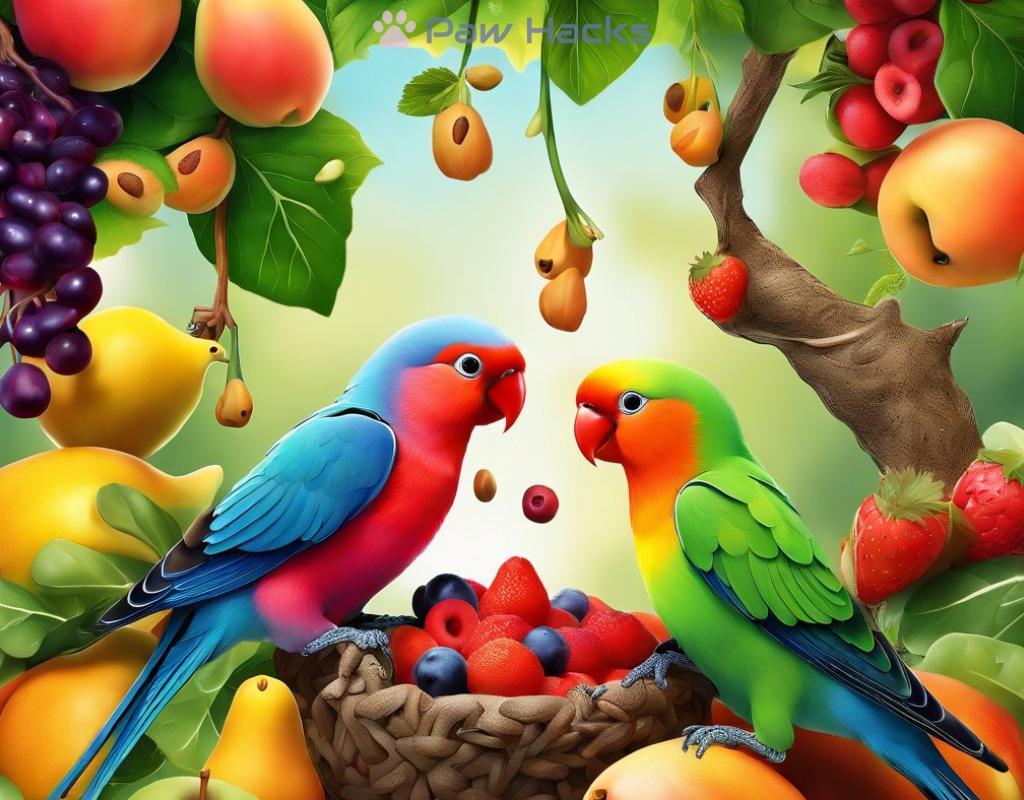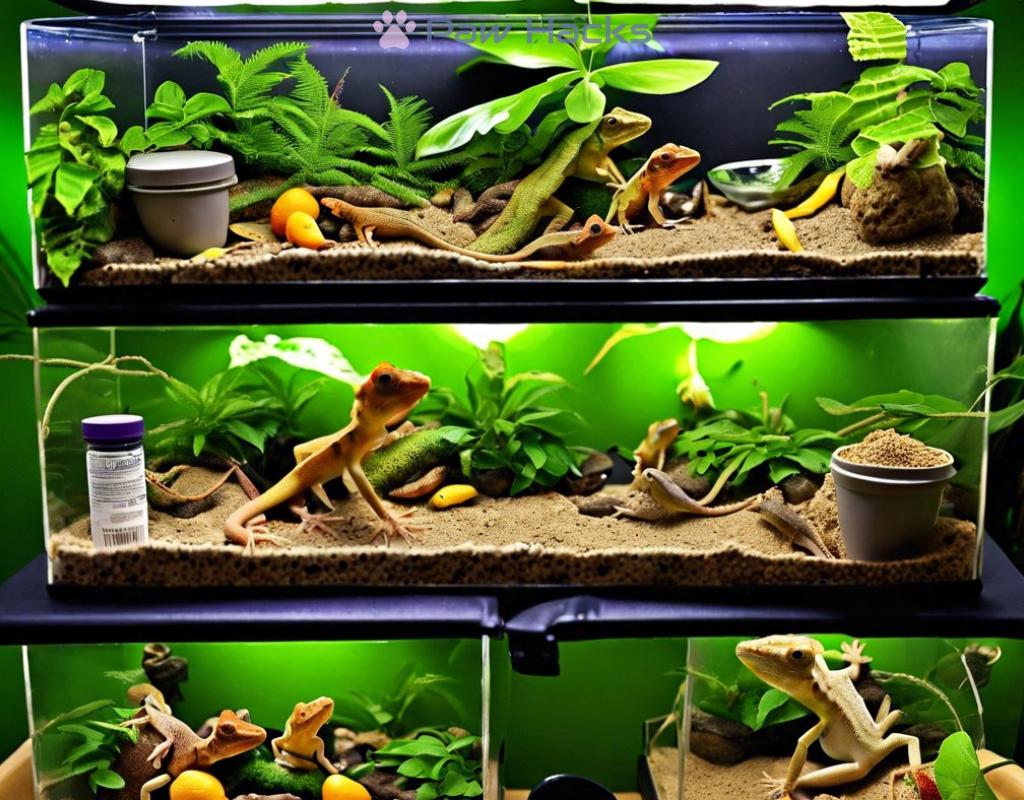Ideal Diet for African Dwarf Frogs
Nourishing Your African Dwarf Frogs: Essential Foods They Crave

African Dwarf Frogs are delightful little creatures that require a well-rounded diet to thrive in your aquarium. Unlike some other pets, these frogs have specific dietary needs that must be met to ensure their health and happiness. Understanding what they crave will help you provide the best care possible for your amphibious friends.
These frogs are primarily carnivorous, which means their diet should consist mainly of protein-rich foods. However, variety is key to preventing nutritional deficiencies and promoting a long, healthy life. In this article, we will explore the essential foods that every African Dwarf Frog craves.
Choosing the right food for your African Dwarf Frogs is crucial. They thrive on a diet that includes both commercial and natural food options. Below is a comparison of the best foods available, along with some homemade alternatives.
| Food Type | Examples | Benefits |
|---|---|---|
| Commercial Foods | Frog pellets, freeze-dried bloodworms | Convenient and nutritionally balanced |
| Live Foods | Brine shrimp, daphnia | High in protein and stimulates natural hunting behavior |
| Homemade Options | Chopped earthworms, small fish | Fresh and nutritious, though harder to prepare |
Each of these food types has its own advantages, and a combination will ensure that your frogs receive a balanced diet.
Now that you understand what foods to offer, let’s talk about how often to feed your African Dwarf Frogs. Overfeeding can lead to health issues such as obesity and water quality problems. A good rule of thumb is to feed them every other day.
- Observe their behavior: Frogs will eat until they are full, so ensure you only offer what they can consume in a few minutes.
- Remove uneaten food: To maintain water quality, always remove any leftover food after feeding time.
- Mix it up: Rotate between different types of food to keep their diet interesting and nutritious.
By following these feeding tips, you will not only meet the dietary needs of your frogs but also promote a healthy and thriving aquarium environment.
The Importance of Variety: A Balanced Diet for Happy Frogs
When it comes to keeping African Dwarf Frogs, providing a balanced and varied diet is essential for their overall well-being. These fascinating creatures thrive in environments that mimic their natural habitats, and just like in the wild, their diet should include a mix of different food sources. A diverse diet not only satisfies their nutritional needs but also keeps them active and engaged, preventing boredom in their aquatic environment.
Understanding the Role of Variety
Just as humans require a range of nutrients to stay healthy, African Dwarf Frogs also benefit from a diet that includes different types of food. A varied diet ensures that they receive all the essential vitamins and minerals necessary for growth, development, and energy. Incorporating different food types helps to stimulate their natural instincts, encouraging their playful and inquisitive nature. Moreover, offering a variety of foods can prevent potential health issues that arise from nutritional deficiencies.
Choosing the Right Mix
To create a balanced diet for your frogs, it’s important to include both commercial and live foods. For instance, high-quality frog pellets provide a solid nutritional base, while freeze-dried bloodworms can be used as an occasional treat. Live foods like brine shrimp and daphnia not only add excitement to feeding time but also provide essential proteins that promote healthy growth. Homemade options, such as chopped earthworms or small fish, can also be included for a fresh and nutritious addition to their diet.
This mix of food types can be compared through their benefits:
| Food Type | Benefits |
|---|---|
| Commercial Foods | Convenient and nutritionally balanced |
| Live Foods | High in protein and stimulates natural hunting behavior |
| Homemade Options | Fresh and nutritious, though harder to prepare |
By rotating through these food types, you help prevent dietary boredom and encourage your frogs to explore their environment, which is crucial for maintaining their natural behaviors.
Feeding Techniques for Optimal Nutrition
To ensure your frogs are getting the benefits of a varied diet, consider implementing feeding techniques that promote healthy eating habits. Offering small portions regularly allows them to eat what they need without overindulgence. It’s essential to monitor their eating habits, as frogs tend to consume food until they’re full. Always remove any uneaten food after a few minutes to maintain water quality, which is vital for their health.
In summary, a varied diet is not just a luxury for African Dwarf Frogs; it is a necessity that contributes to their happiness and vitality. By providing a mix of food types and employing thoughtful feeding practices, you’ll ensure that your frogs are not only well-nourished but also thriving in their aquatic home. Embrace the diversity in their diet and watch your amphibious companions flourish!
Feeding Frequency: How Often Should You Treat Your Frogs?
Determining the right feeding frequency for your African Dwarf Frogs is essential to maintaining their health and vitality. Just like any pet, these frogs thrive on a routine that aligns with their natural behaviors. Understanding how often to feed them will not only ensure they receive adequate nutrition but also help you avoid common pitfalls like overfeeding, which can lead to serious health issues.
Experts generally recommend feeding African Dwarf Frogs every other day. This frequency allows them to digest their food properly and prevents the water quality in their tank from deteriorating due to uneaten leftovers. It’s crucial to pay close attention to their feeding habits, as these frogs will often eat until they feel full. Always observe them during feeding time to gauge their appetite and adjust accordingly.
Understanding Their Needs
It’s important to recognize that African Dwarf Frogs have unique dietary requirements that differ from many other pets. Their metabolism plays a significant role in how often they should be fed. Young, growing frogs may require more frequent meals compared to adults. If you notice that your frogs are becoming more active or seem to be begging for food, it might be an indication that they need more nourishment. However, moderation is key.
Creating a Feeding Schedule
Establishing a consistent feeding schedule helps you track your frogs’ eating habits and overall health. You can create a simple timetable that incorporates various food types to keep their diet interesting and nutritious. For instance, on one day, you might offer frog pellets, while the next day could feature live foods like brine shrimp or daphnia. This rotation not only provides variety but also ensures they receive a balanced intake of nutrients.
Additionally, remember to remove any uneaten food after feeding time. Leaving leftovers in the tank can lead to water quality issues, which can adversely affect your frogs’ health. By keeping the tank clean and monitoring their food intake, you’re setting the stage for a thriving aquatic environment.
| Feeding Frequency | Recommended Foods | Considerations |
|---|---|---|
| Every other day | Frog pellets, live foods | Monitor appetite; adjust accordingly |
| Frequency may vary for young frogs | Occasional treats like freeze-dried bloodworms | Remove uneaten food promptly |
In summary, understanding the feeding frequency for your African Dwarf Frogs is vital for their health and happiness. By offering a well-timed schedule of nutritious foods, you can ensure your frogs remain active, engaged, and thriving in their aquatic habitat.
Avoiding Common Mistakes: What Not to Feed Your African Dwarf Frogs
Understanding Their Dietary Needs
When it comes to feeding African Dwarf Frogs, it’s crucial to understand that not all foods are suitable for these unique amphibians. Providing an appropriate diet is essential for their health and vitality, but many owners inadvertently make mistakes that can jeopardize their frogs’ well-being. To ensure that your frogs thrive, it’s important to be aware of the common pitfalls associated with their diet. This knowledge will help you keep your aquatic companions in optimal condition and avoid frustrating health issues.
Common Dietary Mistakes to Avoid
One of the most frequent errors is offering inappropriate or low-quality foods. While it might be tempting to feed your frogs leftover fish food or scraps from your dinner plate, these options are often unsuitable. Common household foods like bread, lettuce, and processed human snacks are detrimental to their digestive system and can lead to severe health problems. Remember, African Dwarf Frogs are carnivorous and thrive on protein-rich diets. They require foods that match their natural eating habits; thus, sticking to pellets designed specifically for frogs or high-protein live foods is essential.
Another significant mistake is overfeeding. Many owners mistakenly believe that their frogs will benefit from larger portions, but in reality, overfeeding can lead to obesity and water quality issues. It’s vital to observe their eating patterns and provide only what they can consume in a few minutes. Additionally, removing any uneaten food promptly will help maintain a clean and healthy aquarium environment, which is crucial for your frogs’ overall health.
Beware of Toxic Foods
Some foods can be toxic to African Dwarf Frogs and should be avoided at all costs. For instance, do not feed them foods high in fat or carbohydrates, such as meat from land animals, which can lead to digestive problems and potentially fatal consequences. Additionally, avoid feeding them any fish that may contain harmful parasites or bacteria that can be detrimental to their health. Always research any new food you plan to introduce to your frogs’ diet, ensuring it is safe and appropriate.
In summary, by steering clear of common dietary mistakes, you can significantly enhance the quality of life for your African Dwarf Frogs. Understanding what to avoid is just as important as knowing what to feed them. Take the time to educate yourself about their specific needs, and you’ll be rewarded with healthy, vibrant frogs that bring joy to your aquarium.
Supplementing Their Diet: Enhancing Nutrition for Optimal Health
For those who cherish their African Dwarf Frogs, nurturing them with a well-rounded diet is paramount. While a primary diet of commercial pellets and live foods provides a solid foundation, supplementing their nutrition can significantly enhance their health and vitality. This article delves into the various ways you can boost your frogs’ diet to ensure they lead vibrant and active lives.
Elevating Nutritional Value with Supplements
To truly optimize your African Dwarf Frogs’ diet, consider incorporating supplements that enrich their meals. Vitamin and mineral supplements designed specifically for amphibians can be a game changer. These products often come in powdered form and can be lightly dusted on their regular feed. Such supplements help fill any nutritional gaps, promoting better growth and stronger immune systems. Additionally, incorporating spirulina flakes can introduce essential fatty acids, further enhancing their overall health.
Homemade Treats: A Natural Approach
Another excellent way to supplement your frogs’ diet is through homemade treats. While it may take a bit more effort, the benefits are manifold. Ingredients like pureed vegetables or finely chopped insects can provide a delicious and nutritious boost. For example, zucchini and carrots can be pureed and offered as an occasional treat, ensuring your frogs receive a variety of nutrients. Moreover, offering live food such as fruit flies or wingless fruit flies can stimulate their natural hunting instincts and provide essential proteins.
Monitoring and Adjusting Their Diet
As you introduce supplements and homemade options, it’s crucial to monitor your frogs’ responses. Observing their behavior and health can help you determine what works best for them. If your frogs appear more active and vibrant after incorporating certain supplements, it’s a good sign that you’re on the right track. Always remember to provide a balance; too many supplements can lead to unwanted health issues just as easily as too few. Therefore, maintaining a consistent feeding schedule that incorporates these enhancements will contribute to a thriving habitat.
Share this content:



